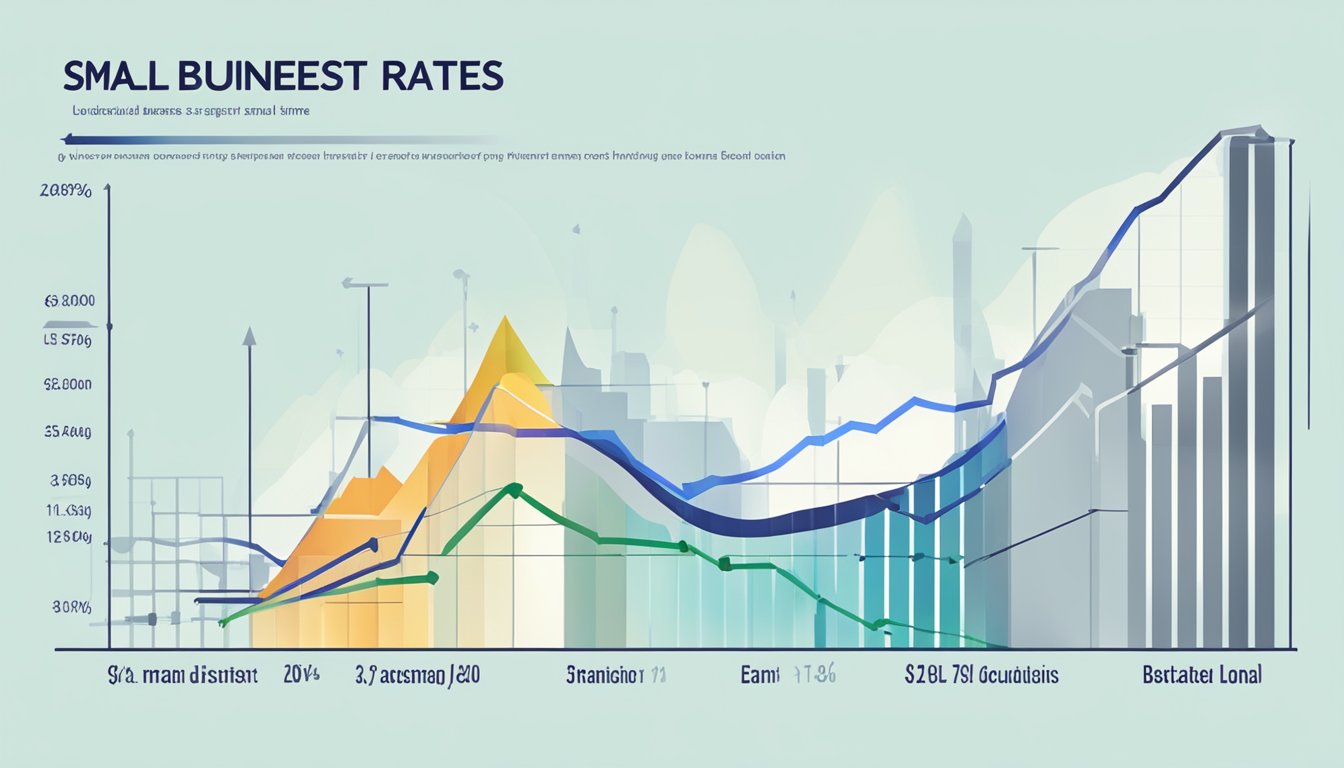
If you’re a small business owner, you know how important it is to have access to financing options that can help you grow and expand your business. One of the most popular financing options available to small businesses is a business loan. However, before you apply for a loan, it’s important to understand small business loan interest rates and how they can impact your business.
Understanding Small Business Loan Interest Rates:
Small business loan interest rates can vary depending on a number of factors, including your credit score, the amount of the loan, and the lender you choose. Typically, interest rates for small business loans range from 7% to 11% per annum for banks and 5% to 15% per month for licensed moneylenders. It’s important to shop around to find the best interest rate for your business.
Choosing the Right Loan for Your Business:
When choosing a business loan, it’s important to consider the interest rate, but it’s not the only factor to consider. You should also consider the loan term, repayment schedule, and any fees associated with the loan. Additionally, you should consider the lender’s reputation and customer service. By considering all of these factors, you can choose the right loan for your business.
Key Takeaways
- Small business loan interest rates can vary depending on several factors, including credit score, loan amount, and lender.
- When choosing a business loan, it’s important to consider the interest rate, loan term, repayment schedule, fees, and lender reputation.
- By shopping around and considering all of these factors, you can choose the right loan for your business.
Understanding Small Business Loan Interest Rates

As a small business owner, financing needs are always at the forefront of your mind. One of the most important factors to consider when taking out a business loan is the interest rate. Understanding small business loan interest rates can help you make informed decisions about your financing options.
Factors Influencing Interest Rates
Several factors influence the interest rate you will be charged on your business loan. These factors include your credit score, collateral, market conditions, inflation, and the lender you choose. Generally, the higher your credit score and the more collateral you can provide, the lower your interest rate will be. Market conditions and inflation can also impact interest rates.
Types of Interest Rates
There are several types of interest rates that lenders may offer for small business loans. These include simple interest, fixed interest, variable interest, and APR. Simple interest is calculated based on the principal loan amount and the interest rate. Fixed interest rates remain the same throughout the loan term, while variable interest rates can change based on market conditions. APR, or annual percentage rate, includes both the interest rate and any fees associated with the loan.
Calculating Your Interest Payments
To calculate your interest payments, you can use a loan calculator. This tool takes into account the total cost of the loan, including interest and fees, as well as the loan amount, compounding periods, and loan tenure. You can also use a business loan calculator to estimate your monthly payments based on your repayment period and interest rate.
Impact of Loan Terms on Interest
The terms of your loan can also impact the interest rate you are charged. Longer repayment periods may result in higher interest rates, while shorter repayment terms may lead to lower interest rates. Additionally, some lenders may charge a processing fee or other fees that can increase the effective interest rate you pay.
Government and Bank-Specific Rates
Enterprise Singapore offers government-assisted loans for small businesses, which may have lower interest rates than traditional loans. Participating financial institutions (PFIs) offer these loans, and the interest rates may vary depending on the lender. Banks such as OCBC, UOB, DBS, Maybank, and Standard Chartered also offer business loans with varying interest rates.
Understanding small business loan interest rates is crucial for making informed decisions about financing your business. By considering the factors that influence interest rates, the types of interest rates available, and the impact of loan terms, you can choose the best financing option for your business. Keep in mind that government-assisted loans and loans from different lenders may have different interest rates, so it’s important to shop around and compare your options.
Choosing the Right Loan for Your Business

When it comes to getting financing for your small business, choosing the right loan is crucial. With so many different loan products and lenders available, it can be overwhelming to determine which one is best for your business needs. Here are some key factors to consider when evaluating loan options.
Evaluating Loan Products
Before applying for a loan, it is important to understand the different types of loan products available. Some common loan products include SME working capital loans, business term loans, unsecured loans, and temporary bridging loans. Each loan product has its own unique features and requirements, so it’s important to choose the one that best fits your business needs.
Assessing Lenders and Financial Institutions
In addition to evaluating loan products, it’s also important to assess the lender or financial institution offering the loan. Look for a lender with a good reputation, competitive interest rates, and transparent fees. You may also want to consider factors such as customer service, loan processing times, and eligibility requirements.
Alternative Financing and Government Support
If traditional bank loans aren’t an option for your business, there are alternative financing options available. Some alternative lenders include licensed moneylenders and government-assisted loans, such as those offered by the Small Business Administration (SBA). These loans may have different eligibility requirements and interest rates, so be sure to do your research before applying.
Navigating Loan Application and Approval
Once you’ve chosen a loan product and lender, the next step is to navigate the loan application and approval process. This may involve providing documentation such as business plans, financial statements, and tax returns. It’s important to be prepared and organized throughout the process to increase your chances of approval.
Strategies for Lowering Interest Rates
Finally, there are strategies you can use to lower your small business loan interest rates. These may include improving your credit score, providing collateral, or finding a guarantor. You may also want to consider alternative financing options or government-assisted loans, which may offer lower interest rates.
Overall, choosing the right loan for your small business can be a complex process. By considering factors such as loan products, lenders, alternative financing options, loan application and approval, and interest rate strategies, you can make an informed decision that best fits your business needs.
Frequently Asked Questions

How can you find the most competitive interest rates for small business loans?
Finding the most competitive interest rates for small business loans requires research. You can compare the interest rates of different financial institutions to find the best deal. Use online loan comparison tools or speak to a financial advisor to get the best deal for your business.
What are the typical terms for interest rates on small business loans?
The typical terms for interest rates on small business loans range from 7% to 11% per annum. However, the interest rates vary depending on the type of financing required and the financial institution providing the loan.
Which financial institutions offer the lowest interest rates for small enterprises?
Different financial institutions offer different interest rates for small business loans. Some financial institutions that offer competitive interest rates for small enterprises in Singapore include OCBC, Validus, and DBS. However, it is important to compare the interest rates and other terms and conditions before choosing a financial institution.
How does one calculate interest rates for small business loans?
The interest rate for a small business loan is calculated based on the loan amount, the repayment period, and the creditworthiness of the borrower. The interest rate is expressed as a percentage of the loan amount and is added to the principal amount to determine the total amount to be repaid.
Are there any special interest rate offers for startups in need of business loans?
Yes, there are special interest rate offers for startups in need of business loans. Some financial institutions offer lower interest rates for startups to encourage entrepreneurship and innovation. However, startups need to meet certain criteria to qualify for these special interest rate offers.
What factors influence the interest rate of a loan for a sole proprietorship?
The interest rate of a loan for a sole proprietorship is influenced by factors such as the creditworthiness of the borrower, the amount of the loan, the repayment period, and the type of collateral offered. A borrower with a high credit score is likely to get a lower interest rate than a borrower with a low credit score. Additionally, loans with longer repayment periods tend to have higher interest rates than loans with shorter repayment periods.




